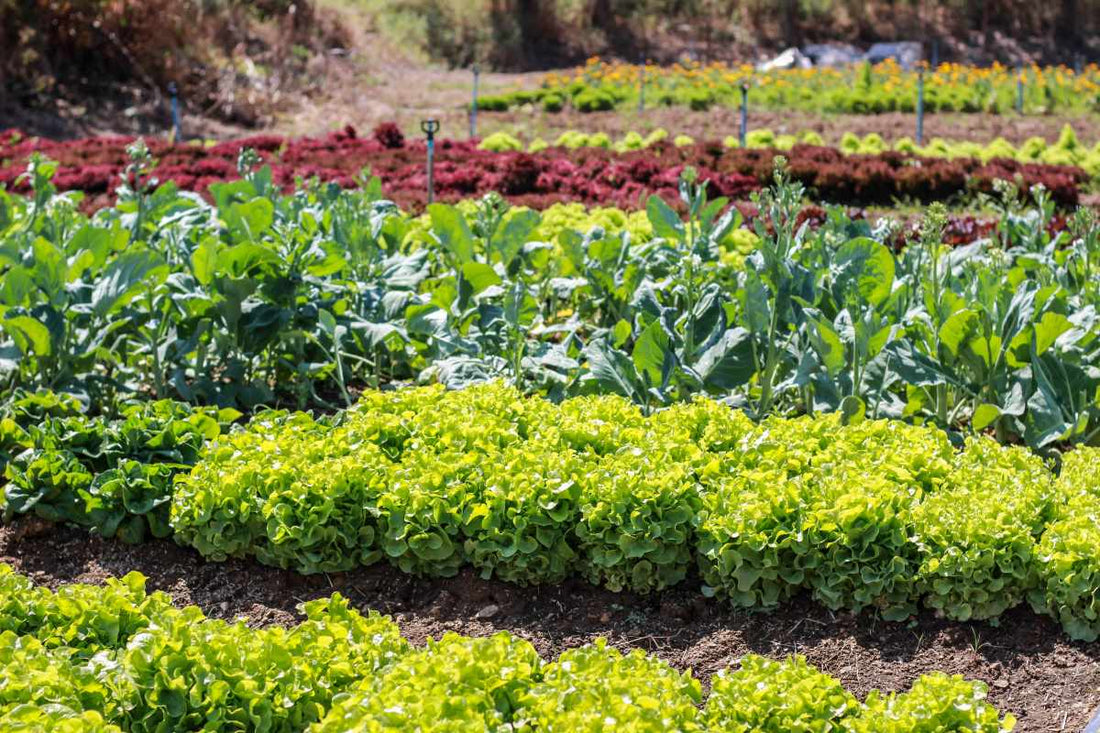Take it from the experts (and your mum): veggies are good for you! But when you grow them in your own garden, they’re better than anything you can buy. The nutritional value of vegetables begins to deteriorate from the minute they’re picked, so nothing can be healthier than veggies that go from the garden to the kitchen, to the table.
In winter, a healthy diet fortifies our immune systems, and fresh winter veggies are the best possible way to get the daily dose of vitamins and minerals that help us to fight off those winter miseries. Read on to find some surprise “superfoods” that almost everyone takes for granted and that should be in your garden this winter.
1. Supercharge Your System With the Cabbage Family
The humble cabbage and its relatives are among the top superfoods you can get. So, why hunt around for the rare, exotic, and expensive when these powerhouses could be growing in your own backyard?
Red cabbage has an edge over its green cousins thanks to an extra load of antioxidants, but even green cabbage is rich in them. Experts say that the antioxidants found in cabbage not only increase immunity but also protect your heart health. And with antioxidants fighting inflammation which leads to all kinds of health woes, you’re on a good wicket when you include plenty of cabbage (and its cousins) in your healthy diet.
2. Kale is in a Class of Its Own
Kale shares benefits with cabbage, but it deserves a special spot of its own on our list of healthy winter veggies for Australian gardens. It’s slightly more filling than cabbage, which makes it great for people looking to cut calories without feeling as hungry, and it has a better amino acid rating, plus it’s even better at fighting inflammation than its cousins. Green smoothie anyone?
3. Swiss Chard: Tasty, Easy to Grow, and Super-Healthy
Swiss chard, also known as silverbeet, is a winner in all but the hottest weather. Eat young, tender leaves in salads or cook it up for a nutrient-dense addition to your diet that’s also low in calories. Packed with vitamin K, this garden standby is also rich in vitamins A and C. It’s also a great source of iron, magnesium, and potassium plus fibre to keep your body working at its best.
4. Carrots are Sweeter in Winter
Crunch down on sweet winter-grown carrots fresh out the ground, or use them as the must-have for winter soups and stews. You probably know they’re a good source of vitamin A, but did you know that they might help to lower your cholesterol levels too? Pack in some extra nutritional punch by choosing some of the unusual, more colourful varieties for an extra load of antioxidants.
5. Supercharge With Raw or Roasted Radishes
Tangy, earthy radishes are more than just colourful salad veggies. Rich in calcium and potassium, they contain a perfect combination of nutrients to foster heart health, and the natural nitrates they contain help with blood circulation too.
6. Leeks: More Than Just Another Soup Ingredient
Leeks contain an unusual flavonoid known as kaempferol. It’s a type of antioxidant, so it reduces inflammation. This nutrient is also believed to fight diabetes, and may even have anti-cancer properties. It’s still being studied to determine all its benefits, but the top one for you is that you’ll feel good about eating and enjoying this iconic winter veggie.
7. Turnips: More Versatile and Nutritious Than You Realised
You’ll rarely hear health food aficionados singing the praises of the turnip, but this classic winter root vegetable offers a nutritional profile that shouldn’t be overlooked. And if you thought it was just for soups and stews, it’s time you broke out of the mould and gave it a chance to prove its versatility.
The glucosinolates it contains are thought to help with blood sugar regulation, can help to protect your body from bacterial infections, and may have anti-cancer properties too.
8. In Case You Needed Extra Encouragement to Grow Peas…
Peas are a winter favourite that most people don’t need any encouragement to grow and eat - often before they even reach the kitchen. But just in case you were wondering, they’re rich in minerals that promote heart health, vitamins that fight inflammation, and healthy plant-based proteins.
9. Lettuce: Even Better in Winter
We tend to think of lettuce as the basis of summer salads - but it prefers cooler weather and tends to be sweeter and juicer in winter. It’s also more nutritious than most people realise. It’s loaded with vitamin C and contains a healthy amount of vitamin A. vitamin K, and folate. It’s also no slouch when it comes to essential minerals including Calcium and Potassium.
10. Spinach: You May Not Turn into Popye But…
You won’t suddenly sprout muscles and turn into Popye, but spinach remains one of the healthiest veggies you can grow in winter. Boost your immune system by combating inflammation, and enjoy spinach’s potential to protect your body against cancer. If you have blood pressure issues, spinach could be a help too!
Everything in Moderation: Enjoy a Varied Diet
If you’re already fairly healthy, keeping yourself that way means enjoying a healthy, balanced diet that’s rich in nutrients. There’s no single food that does the job. The best way to go is to vary your diet, not relying on any one food too much. After all, one really can have too much of a good thing. Growing these healthy winter veggies will give you plenty of options plus that special feeling of quiet pride you get when serving up food you grew yourself. What could be more wholesome than that?

